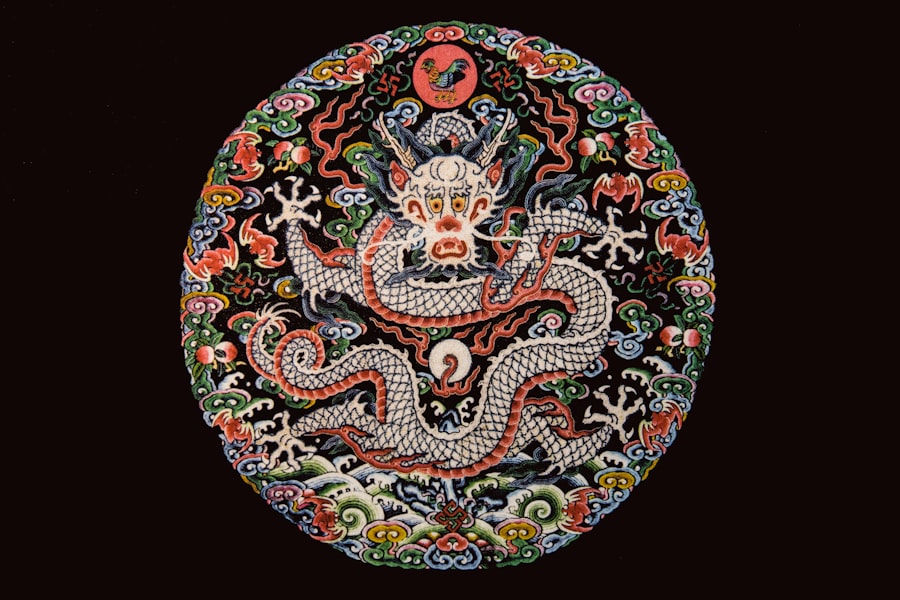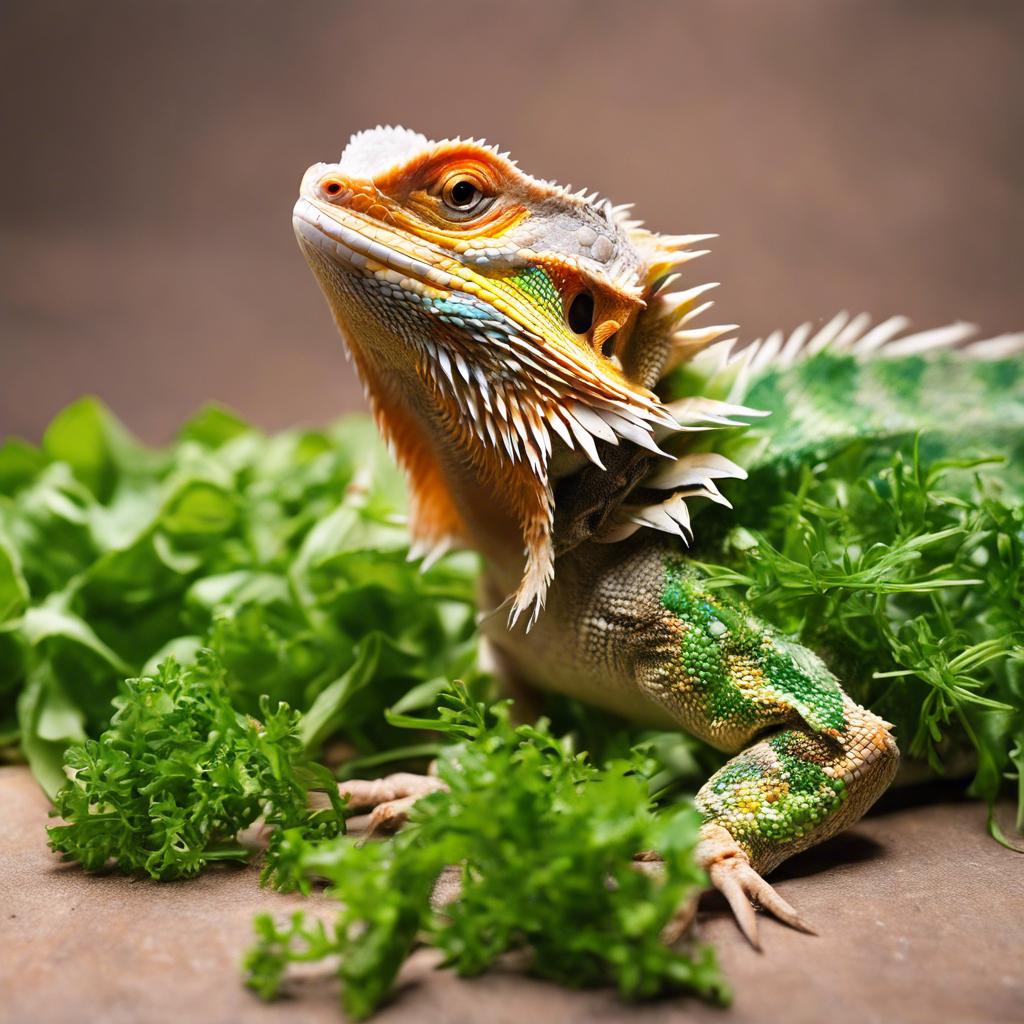Bearded dragons are fascinating reptiles that make popular pets due to their unique appearance and docile nature. As omnivores, they require a balanced diet of both animal protein and plant matter to thrive. While many owners focus on providing the necessary animal protein, such as insects and small rodents, it is equally important to include greens in their diet. Greens are an essential part of a bearded dragon's diet as they provide important nutrients and fiber that contribute to their overall health and well-being.
Key Takeaways
- Greens are an important part of a bearded dragon's diet, providing essential nutrients and fiber.
- Suitable greens for bearded dragons include collard greens, mustard greens, dandelion greens, and kale.
- Greens should be washed and chopped into small pieces before being offered to bearded dragons.
- Bearded dragons should be fed a variety of greens daily, with the amount depending on their size and age.
- Lack of greens in a bearded dragon's diet can lead to health issues such as metabolic bone disease, and signs of nutritional deficiencies include lethargy and loss of appetite.
Types of Greens Suitable for Bearded Dragons
When it comes to choosing greens for your bearded dragon, it is important to select options that are safe and beneficial for their health. Dark leafy greens are excellent choices as they are packed with essential vitamins and minerals. Collard greens, kale, and mustard greens are all great options that can be easily found at most grocery stores or pet supply stores.
In addition to these popular choices, there are other greens that can be included in a bearded dragon's diet. Dandelion greens, turnip greens, and bok choy are all suitable options that provide a variety of nutrients. It is important to note that while some greens may be safe for humans to consume, not all of them are suitable for bearded dragons. It is always best to do thorough research or consult with a veterinarian before introducing new greens into your pet's diet.
How to Prepare Greens for Bearded Dragons
Before offering greens to your bearded dragon, it is important to properly prepare them to ensure they are safe and easy for your pet to consume. Start by rinsing the greens thoroughly under running water to remove any dirt or pesticides that may be present. This step is crucial as bearded dragons have sensitive digestive systems and can become ill if exposed to harmful substances.
Once the greens are clean, it is recommended to chop them into small, bite-sized pieces. This makes it easier for your bearded dragon to eat and digest the greens. Bearded dragons have small mouths and may struggle to consume large pieces of greens. By chopping them into smaller pieces, you are ensuring that your pet can easily consume and benefit from the nutrients in the greens.
In some cases, certain greens may need to be blanched or steamed before offering them to your bearded dragon. This is especially true for tougher greens such as collard greens or kale. Blanching or steaming these greens helps to soften them and make them more digestible for your pet. However, it is important not to overcook the greens as this can lead to a loss of nutrients.
Incorporating Greens into a Bearded Dragon's Diet
To ensure a balanced diet, it is important to offer a variety of greens to your bearded dragon. This helps to provide a wide range of nutrients and prevents boredom from eating the same greens every day. Mixing different types of greens together can also create a more appealing meal for your pet.
In addition to offering a variety of greens, it is also beneficial to mix them with other vegetables and fruits. This creates a varied diet that mimics what bearded dragons would eat in the wild. Some suitable vegetables and fruits include bell peppers, carrots, squash, and berries. However, it is important to remember that fruits should only be offered in moderation due to their high sugar content.
Offering greens as a regular part of your bearded dragon's feeding schedule is crucial for their overall health. Greens should be offered daily alongside other food sources such as insects or small rodents. By incorporating greens into their diet on a regular basis, you are providing them with the necessary nutrients they need to thrive.
Quantity of Greens to Feed a Bearded Dragon
The amount of greens to feed your bearded dragon will depend on their size and age. As a general rule, greens should make up around 20-30% of their diet. This means that the majority of their diet should still consist of animal protein, such as insects or small rodents.
For younger bearded dragons, it is recommended to offer greens daily. As they grow older, the frequency of offering greens can be reduced to a few times a week. It is important to monitor your pet's weight and overall health to determine the appropriate amount of greens to offer.
Nutritional Benefits of Greens for Bearded Dragons

Greens are packed with essential vitamins and minerals that are crucial for a bearded dragon's health. They are a great source of calcium, which is important for bone health and preventing metabolic bone disease. Vitamin A is also abundant in greens and plays a vital role in maintaining healthy skin, eyesight, and immune function.
In addition to calcium and vitamin A, greens also provide other important nutrients such as vitamin C, vitamin K, and folate. These nutrients contribute to overall health and well-being. The fiber found in greens helps with digestion and can prevent constipation, which is a common issue in bearded dragons.
Regular consumption of greens can improve your bearded dragon's overall health and prevent potential health issues. By providing them with a balanced diet that includes a variety of greens, you are ensuring that they receive the necessary nutrients to thrive.
Potential Health Issues Caused by Lack of Greens in a Bearded Dragon's Diet
A lack of greens in a bearded dragon's diet can lead to nutritional deficiencies and health problems. One common issue that can arise is metabolic bone disease (MBD). MBD occurs when there is an imbalance of calcium and phosphorus in the diet, leading to weakened bones and skeletal deformities.
Bearded dragons may also experience other health issues if they do not receive enough calcium and other nutrients found in greens. These can include stunted growth, weakened immune system, and reproductive problems. It is important to provide a balanced diet that includes greens to prevent these potential health issues.
Signs of Nutritional Deficiencies in Bearded Dragons
It is important to be aware of the signs of nutritional deficiencies in bearded dragons so that you can address them promptly. Lethargy, loss of appetite, and weakened bones are all potential signs that your bearded dragon may be lacking essential nutrients.
Regular veterinary check-ups can help identify any potential health issues caused by a lack of greens in your bearded dragon's diet. A veterinarian can perform blood tests to determine if there are any deficiencies and provide guidance on how to address them.
Supplementing a Bearded Dragon's Diet with Greens
In addition to offering fresh greens, bearded dragons may benefit from supplements such as calcium powder or vitamin supplements. These supplements can help ensure that your pet is receiving the necessary nutrients, especially if they are not consuming enough greens.
It is important to consult with a veterinarian before adding supplements to your bearded dragon's diet. They can provide guidance on the appropriate dosage and frequency of supplementation based on your pet's specific needs.
The Role of Greens in Bearded Dragon Care and Health
In conclusion, greens are an essential part of a bearded dragon's diet and provide important nutrients and fiber. Regular consumption of greens can improve overall health and prevent potential health issues such as metabolic bone disease. By offering a variety of greens and incorporating them into a regular feeding schedule, bearded dragon owners can ensure their pets receive a balanced and healthy diet. Remember to always consult with a veterinarian for specific dietary recommendations for your individual pet.
If you're a proud owner of a bearded dragon, you know how important it is to provide them with a balanced diet. One crucial aspect of their nutrition is greens. However, not all greens are suitable for these reptiles. To ensure you're feeding your bearded dragon the right greens, check out this informative article on Reptile Wizard's website. It provides valuable insights into the best greens for bearded dragons and offers helpful tips on how to incorporate them into their diet. Don't miss out on this essential information! Click here to read the article and keep your bearded dragon healthy and happy.
FAQs
What are greens for a bearded dragon?
Greens for a bearded dragon refer to the leafy greens and vegetables that are part of a healthy diet for these reptiles.
Why are greens important for bearded dragons?
Greens are important for bearded dragons because they provide essential nutrients such as vitamins, minerals, and fiber that are necessary for their overall health and well-being.
What are some examples of greens for bearded dragons?
Some examples of greens for bearded dragons include collard greens, mustard greens, turnip greens, dandelion greens, kale, and spinach.
Can bearded dragons eat fruits?
Yes, bearded dragons can eat fruits, but they should be given in moderation as they are high in sugar. Some safe fruits for bearded dragons include apples, berries, and melons.
How often should bearded dragons be fed greens?
Bearded dragons should be fed greens daily as part of their regular diet. The amount of greens they need depends on their age, size, and activity level.
Can bearded dragons eat insects and meat?
Yes, bearded dragons are omnivores and can eat insects and meat as part of their diet. Some safe options include crickets, mealworms, and small pieces of cooked chicken or fish.
What should bearded dragons avoid eating?
Bearded dragons should avoid eating foods that are high in fat, such as cheese and fatty meats. They should also avoid foods that are toxic to them, such as avocado and rhubarb.

